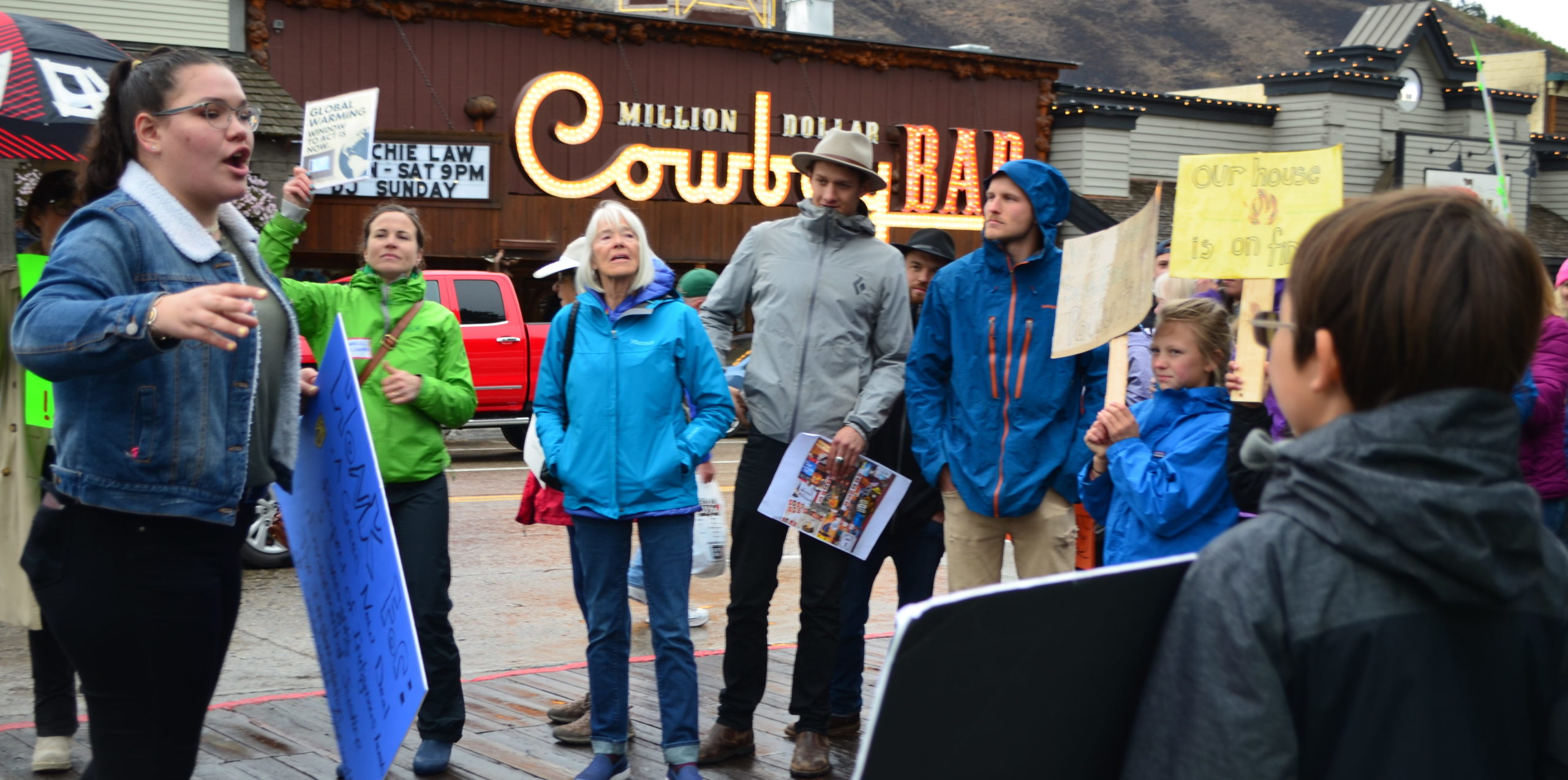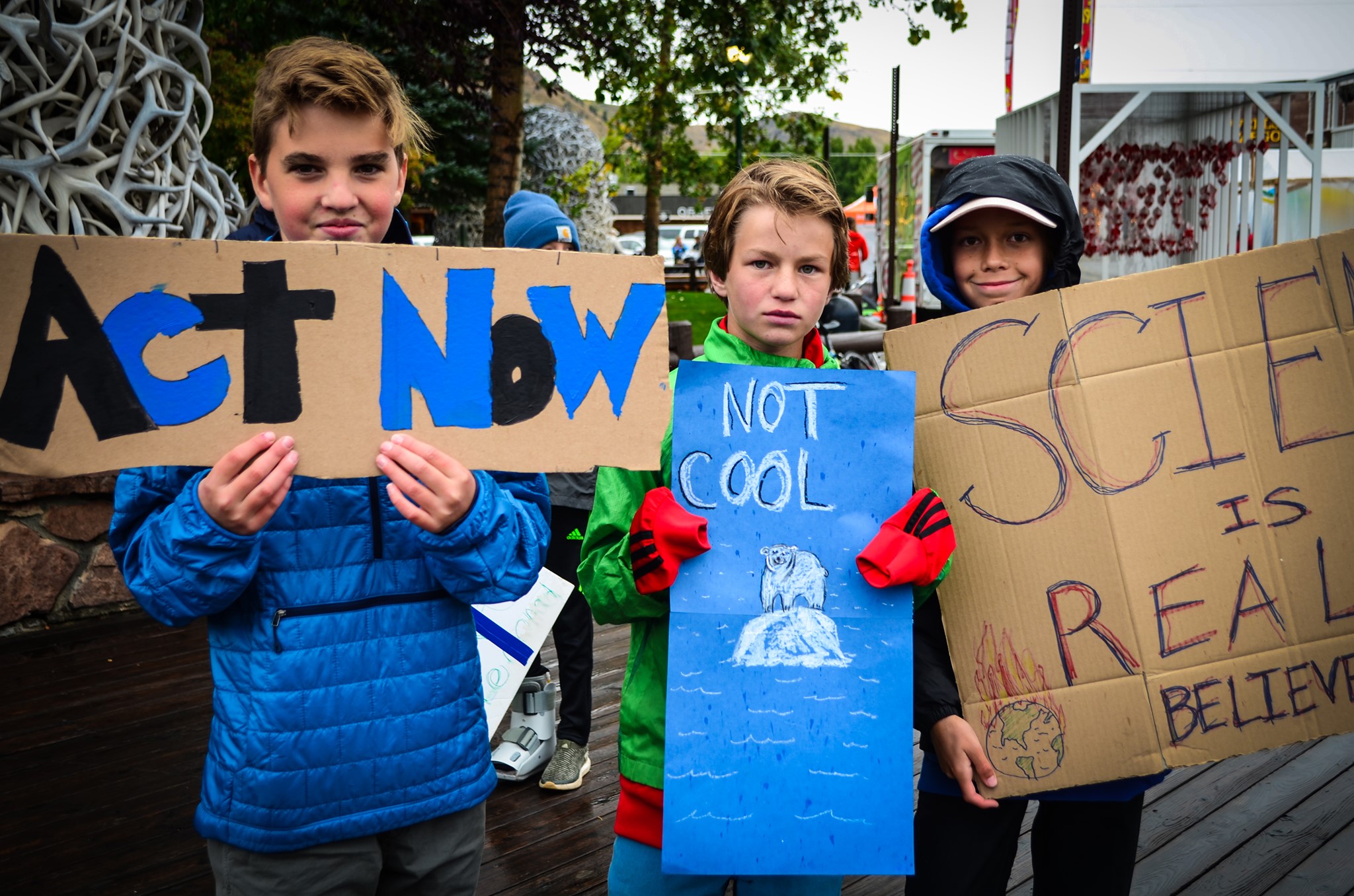They ranged in age from roughly 7 to 71. They held signs that read “We want solution, not pollution”; “Act now” and “Denial is deadly.”
On Friday nearly 75 people gathered on a dampened town square, but their spirits were anything but. They were among the four million people worldwide drawing attention to climate change during the youth-led global day of action. But in Jackson, most of the protesters at the “youth climate strike” were in fact adults. A dozen or so were students.
Among the young people who did attend was 17-year-old Maleah Tuttle. She pressed pause on some important life tasks to participate in the climate strike: “I was supposed to be applying for colleges today but I’m here.”
Part of Tuttle’s message was different than other protesters who cited concerns about fossil fuels, plastic pollution and wildlife. She is Lakota Sioux, Flathead and Umatilla and wanted to highlight the ways climate change will disproportionately affect indigenous peoples and other marginalized populations.
“Indigenous peoples’ land and resources and communities and cultural beliefs are all so intertwined with our natural land. We’re already seeing those groups here in the United States and worldwide being affected by climate change,” Tuttle said.
According to the United Nations Department of Economic and Social Affairs, indigenous peoples are among the first to face the direct consequences of climate change. That’s because they closely depend on the environment and its resources. Climate change, the UN notes, exacerbates the difficulties already faced by indigenous communities. They include political and economic marginalization, loss of land and resources, human rights violations, discrimination and unemployment.
Tuttle said she was also at the youth climate strike because of 16-year-old Swedish climate activist Greta Thunberg.
“She is absolutely an inspiration and I think stands as an amazing focal point for the opinions and the general tone that I think a lot of my generation has,” Tuttle said. “We didn’t make the problems here. It wasn’t our fault but we are going to inherit the problems. And so we have a personal moral responsibility to be here at these protests, to be on the public stage, to be making commentary and decisions and making our voices known.”
Thunberg has galvanized a growing movement of young people who want government action on climate change. It began last year when she started skipping school on Fridays to protest outside the Swedish parliament building. That culminated with Friday’s global day of action which she spearheaded. Thunberg was joined by people in more than 150 countries. It was just ahead of the United Nations’ climate summit in New York City. (She sailed there, by the way, from Sweden to reduce her carbon footprint.)
Akin to many social movements throughout history, young people are indeed leading this one. And much of their action stems from the fear of an uncertain future. According to a recent poll by the Kaiser Family Foundation and The Washington Post, most American teens are frightened by climate change and one in four is taking action amid what they see as government inaction. Of the teens surveyed, 74% said the U.S. government isn’t doing enough.
Jessica Sell Chambers, a national committeewoman for the Democratic National Committee, agrees with those young voices. “I just got back from San Francisco at the latest Democratic National Committee meeting, where we worked our butts off to try and get a climate debate to happen and we lost our vote. The vote died 222-137. I don’t understand that.”
Climate-conscious voters are indeed looking to Democrats to lead the way on climate change. That’s because the Trump administration has made its priorities clear. It has rolled back environmental protections on everything from clean air and clean water to endangered species. President Trump also pulled the U.S. out of the Paris Climate Accord in 2017. Hence, Democratic presidential candidates are increasingly feeling the pressure to make climate change a focal point. But people like 20-year-old Josephine Gwilliam say climate change isn’t a partisan issue. Gwilliam is a “proud Republican.”
“This is an issue that a lot of people make political and it shouldn’t be. Whether you’re Republican or liberal, it doesn’t matter. This is something we should all be able to agree on.”
Gwilliam invoked traditional conservative values as reason for Republicans to engage. If people don’t act now, Gwilliam said, “the government’s gonna have to, and that’s going to infringe on our rights. So I think if you really are a Republican you should be out here.”
The youth-led climate strikes show how a rising consciousness is spreading across the world. That young people like Gwilliam and Tuttle, positioned on opposite ends of the political spectrum, are uniting around climate change suggests that when their generation comes into power, things could look a lot different.
The global climate strikes are scheduled to continue Friday, September 27.







